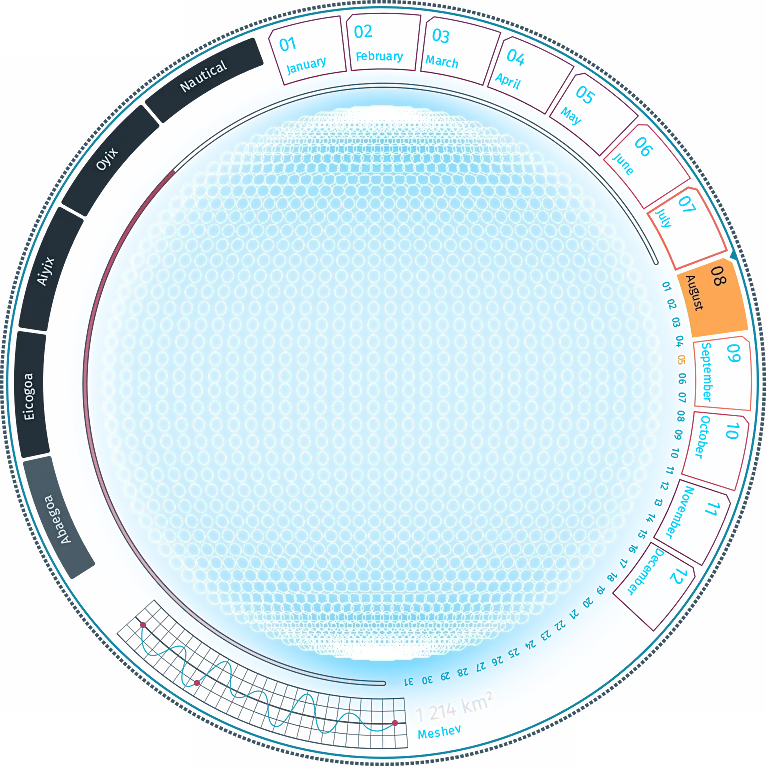Nerthachian (ˈnerthak)
na sy fy i pha xile na ish pha gosh onye lúrl ach
Pronunciation: /na sy fy i pha xiˈle na ish pha gosh oˈnje lúrl akh/
Nerthachian word order: and he stood holding his hat and turned his wet face the wind to
Communication is difficult on Abatesh Island due to the loud storms, but the Nerthach devised a language incorporating sounds that help cut through the noise of an animus. Nerthachian is still lyrical, but it contains stronger Z and V sounds in comparison to other Thyselian languages. Despite being considered a broken dialect, this mode of communication is often superior to any other language when combined with facial and body expression, movement, and posture.
Phonology
Consonant inventory: b c d f g h j k l m n p q r s t v w x z
| ↓Manner/Place→ | Bilabial | Labiodental | Alveolar | Palatal | Velar | Uvular | Glottal |
|---|---|---|---|---|---|---|---|
| Nasal | m | n | |||||
| Stop | p b | t d | c | k g | q | ||
| Fricative | f v | s z | x | h | |||
| Approximant | j | ||||||
| Trill | r | ||||||
| Lateral approximant | l |
| ↓Manner/Place→ | Labial-velar |
|---|---|
| Approximant | w |
| Front | Back | |
|---|---|---|
| High | i í y | u ú |
| High-mid | e | o |
| Low | a |
Morphology
Adjective → adverb = Suffix -a |
Adjective → noun (the quality of being [adj]) = If ends with vowel: Suffix -nt
|
Adjective → verb (to make something [adj]) = If ends with vowel: Suffix -r
|
Noun → adjective (having the quality of [noun]) = If ends with vowel: Suffix -l
|
Noun → adjective relating to noun (e.g. economy → economic) = Prefix a- |
Noun to verb = Prefix i- |
Verb → adjective (result of doing [verb]) = If starts with vowel: Prefix g-
|
Tending to = Prefix i- |
Verb → noun (the act of [verb]) = If starts with vowel: Prefix zh-
|
Verb → noun that verb produces (e.g. know → knowledge) = If ends with vowel: Suffix -thra
|
One who [verb]s (e.g. paint → painter) = Suffix -o |
Place of (e.g. wine → winery) = Prefix wha- |
Diminutive = If ends with vowel: Suffix -nd
|
Augmentative = Suffix -a |
Syntax
Nouns
| Masculine | Feminine | |
|---|---|---|
| Singular | No affix
|
No affix
|
| Plural | Prefix la-
|
If starts with vowel: Prefix l-
|
Articles
| Definite | thef /thef/
|
| Indefinite | hí /hí/
|
Uses of definite article that differ from English:
- Used for languages: ‘The English’
Pronouns
| 1st singular | nha /nha/
|
| 2nd singular | vú /vú/
|
| 3rd singular masc | sy /sy/
|
| 3rd singular fem | tath /tath/
|
| 1st plural | ny /ny/
|
| 2nd plural | bra /bra/
|
| 3rd plural masc | yhi /jhi/
|
| 3rd plural fem | qích /qích/
|
Possessive determiners
| 1st singular | no /no/
|
| 2nd singular | zhe /zhe/
|
| 3rd singular masc | pha /pha/
|
| 3rd singular fem | tík /tík/
|
| 1st plural | bruned /brund/
|
| 2nd plural | a /a/
|
| 3rd plural masc | fí /fí/
|
| 3rd plural fem | dash /dash/
|
Verbs
| 1st singular | If starts with vowel: Prefix ln-
|
| 2nd singular | If starts with vowel: Prefix b-
|
| 3rd singular masc | If starts with vowel: Prefix g-
|
| 3rd singular fem | Prefix y-
|
| 1st plural | Prefix jhi-
|
| 2nd plural | If starts with vowel: Prefix j-
|
| 3rd plural masc | Prefix i-
|
| 3rd plural fem | If starts with vowel: Prefix únj-
|
Imperfective aspect
The ‘imperfective’ aspect refers to ongoing actions, such as I am learning and habitual actions, such as I learn (something new every day).
Nerthachian uses an affix for imperfective:| Imperfective | Prefix lí-
|
Perfect aspect
The perfect aspect in English is exemplified in ‘I have read this book’, which expresses an event that took place before the time spoken but which has an effect on or is in some way still relevant to the present.
Nerthachian uses an affix for the perfect aspect:| Perfect | Prefix i-
|
Vocabulary
Numbers
Nerthachian has a base-10 number system:
Tenses
Nerthachian uses a standalone particle word for past tense:
| Past | Particle before the verb: nosh -
|
Nerthachian uses a standalone particle word for future tense:
| Future | Particle before the verb: bokh -
|
Structural Markers
Main word order: Subject Verb Object (Prepositional phrase).
“Mary opened the door with a key” remains Mary opened the door with a key.
Adjective order: Adjectives are positioned before the noun.
Adposition: postpositions
Syllable structure: Custom defined
Stress pattern: Second — stress is on the second syllable
Dictionary
- Seshaela
- Lara
- Zelael
- Ryndra
- Elvesanaza
- Qulahyna
- Ynaethara
- Jhavaz'ranal
- Yvari
- Maelynd
- Rinzie
- Tokazz
- K'thelevum
- Baelorn
- Meil
- Kelm
- Belora
- Qualvir
- Senyx
- Drosza
Phonetics
| Pronunciation | Spelling |
|---|---|
| kw | qu |
| kt | cked / _# |
| k | c / !_{ɪ,i,ɛ,e,s} |
| oʊ̯C₁ | oC₁e / _# |
| uːC₁ | uC₁e / _# |
| eɪ̯C₁ | aC₁e / _# |
| eɪ̯ | ay / _# |
| eɪ̯ | a |
| ð | th |
| θ | th |
| ʍ | wh |
| ŋg | ng |
| ŋ{k,c} | nk |
| ŋ | ng |
| ʧ | ch |
| ʃ | sh |
| ɹ | r |
| z | s / _# |
| ju | u / C_ |
| cc | ck |
| c | k / _# |
| {t,d} | ed / C_# |
| aʊ̯ | ow / _# |
| aʊ̯ | ou |
| ʊə̯ | ou |
| ɔɪ̯ | oi |
| ɪə̯ | ear |
| aɪ̯ | i |
| ɪ | y / _# |
| ɪ | i |
| ji | yi |
| j | y |
| iː | y / _# |
| yy | yi / _# |
| y | i / #_# |
| ʌ | u |
| iː | ee |
| oʊ̯ | o |
| ʊ | oo |
| ɛ | e |
| ɑ(ː) | a |
| t | tt / æ_# |
| l | ll / æ_# |
| s | ss / æ_# |
| z | zz / æ_# |
| æ | a |
| ʤ | j / #_ |
| ʤ | ge / _# |
| ʤ | dg |
| ɜː | ur |
| ɔː | or |
| uː | u |
| quur | quir |
| eə̯ | ere |


Comments